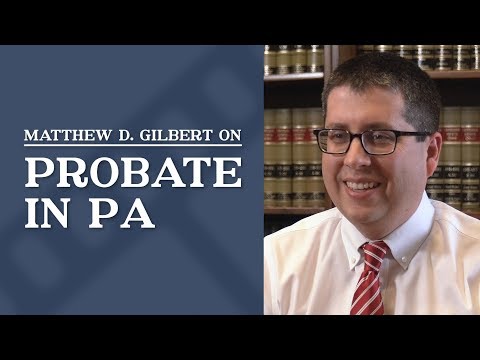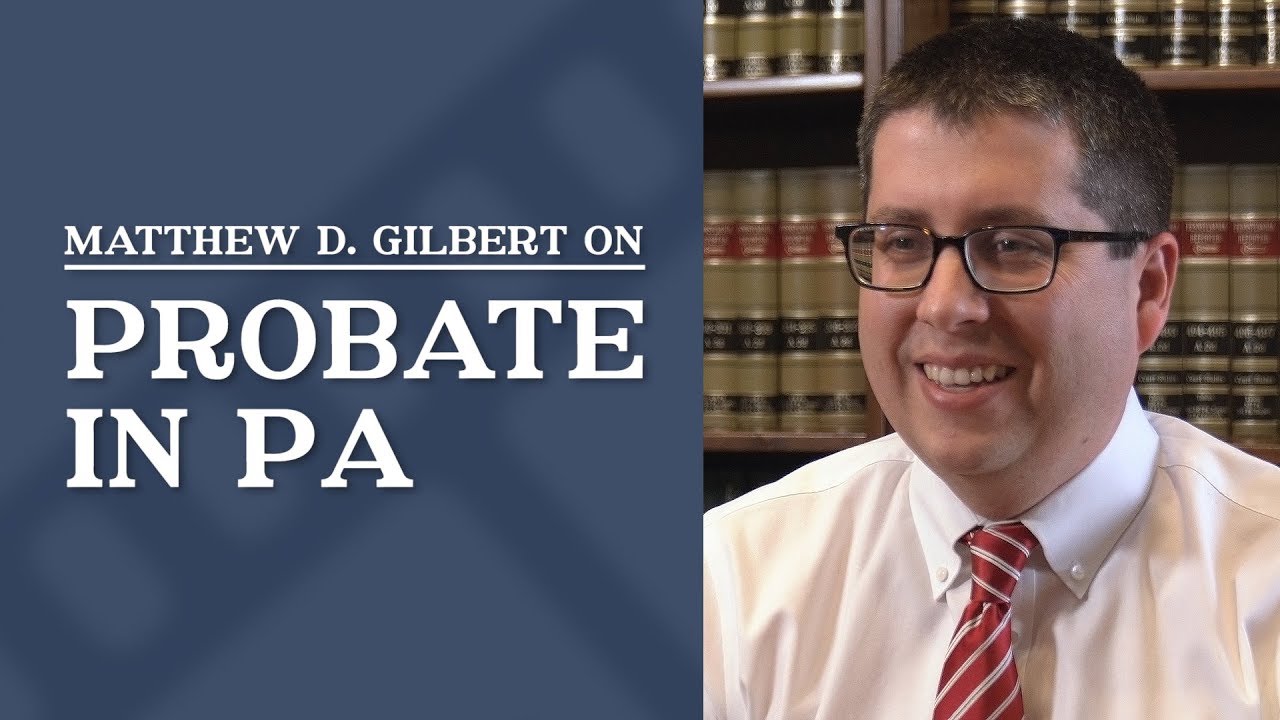Probate in PA: Discover the key to unlocking the mysteries of estate resolution. In Pennsylvania, probate is the legal process that ensures a deceased person’s assets are distributed according to their wishes. But it’s much more than just a legal procedure; it’s a glimpse into the fascinating world of inheritance and legacy. With probate, families embark on a journey to honor their loved ones’ final wishes, navigating through the intricacies of the law and the complexities of emotions. This captivating process offers an opportunity to reflect on the significance of probate as a means to preserve family legacies and maintain harmony. Whether you’re an executor, a beneficiary, or simply curious about the inner workings of inheritance, delving into the realm of probate in Pennsylvania is an enlightening experience. Learn about the meticulous steps involved in validating wills, transferring assets, and resolving disputes, all while gaining a deeper understanding of the importance of probate in safeguarding family wealth. Explore the probate journey in PA and witness firsthand the profound impact it can have on individuals and their loved ones.

Probate in Pennsylvania
| Term | Definition |
|---|---|
| Probate | Probate is the legal process through which a deceased person’s assets are distributed to their heirs and beneficiaries. In Pennsylvania, probate is governed by the Orphans’ Court Division of the Court of Common Pleas. |
| Intestate | When a person dies without a valid will, they are said to have died intestate. In such cases, the court appoints an administrator to manage the estate and distribute assets according to Pennsylvania’s intestacy laws. |
| Testate | A person who dies with a valid will is said to have died testate. The will typically designates an executor who is responsible for carrying out the deceased’s wishes and distributing assets according to the terms of the will. |
| Estate | The estate refers to the total assets, including property, bank accounts, investments, and personal belongings, owned by a deceased person at the time of their death. During probate, the estate is valued, debts are paid, and remaining assets are distributed to beneficiaries. |
| Executor | An executor is an individual or institution appointed by the deceased person in their will to manage the probate process. The executor’s responsibilities include gathering and safeguarding assets, paying debts and taxes, and distributing assets to beneficiaries. |
| Beneficiary | A beneficiary is a person or entity named in the deceased person’s will or determined by intestacy laws to receive a share of the estate’s assets. Beneficiaries can be family members, friends, charitable organizations, or other entities designated by the deceased. |
| Intestate Succession | If a person dies without a will, Pennsylvania’s intestacy laws determine how the estate is distributed among the surviving family members. The laws prioritize spouses, children, and other close relatives, ensuring a fair and orderly distribution of assets. |
| Probate Assets | Probate assets are the assets of the deceased person that must go through the probate process to be distributed. This includes assets solely owned by the deceased without designated beneficiaries or joint owners. |
| Non-Probate Assets | Non-probate assets are assets that pass directly to designated beneficiaries without going through probate. These may include assets held in joint tenancy, assets with payable-on-death or transfer-on-death designations, and assets held in trust. |
| Small Estate | Pennsylvania provides a simplified probate process for small estates valued at $50,000 or less. This allows for expedited administration and distribution of assets, avoiding the need for a full probate proceeding. |
“Effortless Estate Transfers: Streamlining Probate in Pennsylvania”
What is Probate in Pennsylvania?
Probate is a legal process that takes place after an individual passes away. It involves proving the validity of their will, identifying and inventorying their assets, paying off any outstanding debts or taxes, and distributing the remaining assets to the rightful beneficiaries. In Pennsylvania, probate is handled by the Register of Wills in the county where the deceased person resided at the time of their death.
1. The Role of the Register of Wills
The Register of Wills is an elected public official responsible for overseeing the probate process in Pennsylvania. Their primary role is to ensure that the decedent’s wishes, as expressed in their will, are carried out correctly. The Register of Wills also provides guidance and assistance to executors or administrators throughout the probate process.
When someone passes away, the executor named in the will must go to the Register of Wills office to begin the probate process. They will be required to present the original will, along with other necessary documents, such as the death certificate and an inventory of the deceased person’s assets.
2. Intestate Succession
Intestate succession occurs when someone dies without a valid will. In such cases, Pennsylvania’s laws determine how the deceased person’s assets will be distributed. The Register of Wills will appoint an administrator to handle the estate, and the assets will be distributed to the decedent’s heirs according to a predetermined order of priority.
If the deceased person is survived by a spouse but no children, the spouse will inherit the entire estate. If there are both a spouse and children, the spouse will receive the first $30,000 of the estate, plus one-half of the remaining balance. The children will receive the other half of the remaining balance.
3. Small Estate Administration
In Pennsylvania, small estate administration is an alternative to the formal probate process for estates with a value of $50,000 or less. This simplified procedure allows for a faster and less costly distribution of assets. The executor or administrator must file a Petition for Small Estate, along with an inventory of the assets, to the Register of Wills.
If approved, the Register of Wills will issue a short certificate, granting the petitioner the authority to collect and distribute the assets. This process can often be completed within a few weeks, compared to the months or even years that a formal probate process may take.
4. Probate Fees and Taxes
During the probate process, certain fees and taxes may be assessed. The Register of Wills charges a fee based on the value of the estate. This fee is calculated on a sliding scale and is typically paid by the executor or administrator.
In addition to the probate fees, Pennsylvania also imposes an inheritance tax on certain assets transferred at death. The tax rate varies depending on the relationship between the deceased person and the beneficiary. Spouses and children are usually exempt from paying inheritance tax, while more distant relatives and non-relatives may face higher tax rates.
5. Avoiding Probate
Many individuals aim to avoid probate altogether due to its potential costs, delays, and lack of privacy. There are several strategies that can be employed to accomplish this goal. One common method is to establish a revocable living trust, in which assets are transferred during one’s lifetime and managed by a trustee. Since the assets are held in the trust, they do not go through the probate process upon death.
Other methods of avoiding probate include designating beneficiaries on retirement accounts and life insurance policies, jointly owning property with rights of survivorship, and utilizing payable-on-death (POD) or transfer-on-death (TOD) designations on bank accounts and investment accounts.
In conclusion, probate is a necessary legal process in Pennsylvania that ensures the orderly distribution of a deceased person’s assets. Whether going through the formal probate process or utilizing alternatives such as small estate administration, it is essential to understand the procedures and requirements to successfully navigate the probate system.

